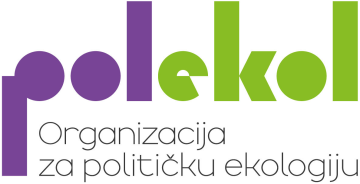From September 5th to 7th, forty women—members of the
Kopaonik was not chosen by chance. Once rich in pristine water sources, it now stands as a symbol of mounting problems: from illegal construction and small hydropower plants to water shortages in nearby Raška. These very contrasts provided a powerful backdrop for the gathering.
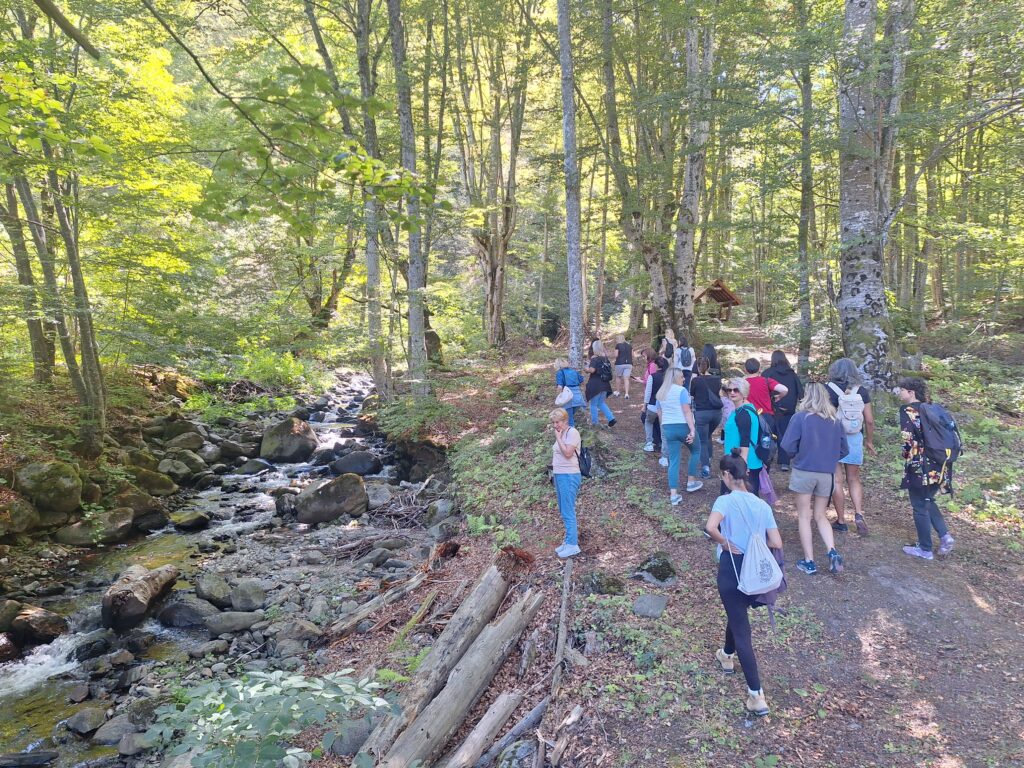
Within Kopaonik National Park, there is no established sewage system, causing wastewater to flow directly into the Raška River. Although efforts to address this issue have begun, they have not resulted in a lasting solution, and the promises made by the relevant authorities remain unfulfilled.
U selu Rudnica nalaze se dva velika jalovišta nastala usled rudarskih aktivnosti u rudniku cinka. Analize zemljišta pokazale su prisustvo teških metala, što stvara ozbiljan rizik za zdravlje ljudi i životnu sredinu. Takođe, u planu je izmeštanje jalovišta, a postoji i mogućnost otvaranja novih rudnika zlata, olova i cinka, uz izgradnju brze pruge, što bi moglo biti korišćeno kao paravan za širenje rudarske industrije.
In the village of Rudnica, there are two large tailings sites resulting from mining activities at the zinc mine. Soil analyses have revealed the presence of heavy metals, posing a serious risk to human health and the environment. There are also plans to relocate the tailings, and the potential opening of new gold, lead, and zinc mines, along with the construction of a high-speed railway, could be used as a pretext to expand the mining industry.
Kopaonik, koji je nekada bio bogat izvorskom vodom, danas se suočava s problemom presušivanja vodoizvorišta usled klimatskih promena. Raška se već više od decenije bori sa restrikcijama vode, a stanje u vodosnabdevanju je alarmantno. Mreža je u lošem stanju, s gubicima većim od 40%, što dovodi do čestih restrikcija, posebno u višim delovima opštine tokom letnjih meseci. Cevi nisu redovno održavane, što dodatno pogoršava situaciju.
Kopaonik, once rich in spring water, now faces the problem of drying water sources due to climate change. For more than a decade, Raška has struggled with water restrictions, and the situation in water supply is alarming. The network is in poor condition, with losses exceeding 40%, leading to frequent restrictions, especially in the higher areas of the municipality during the summer months. Pipes are not regularly maintained, which further worsens the situation.
U nastavku prvog radnog dana, Žaklina Živković iz Polekola otvorila pitanje bezbednosti i prostora za delovanje žena u ekološkom aktivizmu, ističući kako se prostor za slobodan i bezbedan rad aktivistkinja sve više sužava. Učesnice su odmah ušle u diskusije koje su pokazale koliko su borbe za životnu sredinu i vodu neraskidivo povezane sa borbom za osnovna ljudska prava.Continuing on the first day of the seminar, Žaklina Živković from Polekol raised the issue of safety and space for women in environmental activism, highlighting how opportunities for activists to work freely and safely are increasingly shrinking. The participants immediately engaged in discussions that revealed just how closely environmental and water struggles are intertwined with the fight for fundamental human rights.Drugi dan je započeo terenskom posetom Nacionalnom parku Kopaonik. Učesnice su imale priliku da vide posledice lošeg upravljanja prirodom. Poseban utisak ostavila je poseta mini hidroelektrani na Samokovskoj reci, izgrađenoj 2017.godine, neposredno pre zakonske zabrane MHE u zaštićenim područjima. Na licu mesta bilo je jasno koliko ovakvi projekti narušavaju ekosistem i zajednice koje od tih reka zavise. Prof. dr Snežana Simić podelila je sa učesnicama iskustvo praćenja stanje životne sredine na Kopaoniku. Simić sa drugim naučnicima sa Prirodno-matematičkog fakulteta vrši monitoring u Nacionalnom parku od 1996. Godine. Od tada do danas, pokazalo se da se u ovom zaštićenom području ne poštuju osnovni postulati zaštite, posebno u drugoj i trećoj zoni. Poslednjih godina primetna je sve veća degradacije vodenih ekosistema, i po pitanju količine vode i zagađenja.The second day began with a field visit to Kopaonik National Park. Participants had the opportunity to witness the consequences of poor environmental management. A particularly striking moment was the visit to the small hydropower plant on the Samokovska River, built in 2017, just before the legal ban on SHPPs in protected areas. On site, it was clear how such projects disrupt ecosystems and the communities that depend on these rivers.
Prof. Dr. Snežana Simić shared with the participants her experience monitoring the environmental state of Kopaonik. Together with other scientists from the Faculty of Science, Simić has been conducting monitoring in the National Park since 1996. Since then, it has become evident that basic principles of protection are not being respected in this protected area, especially in the second and third zones. In recent years, there has been a noticeable increase in the degradation of aquatic ecosystems, both in terms of water quantity and pollution.Istaknuti su sledeći problemi:The following issues were highlighted:Pretnje od izgradnje mini hidroelektrana
Na području opštine Raška postoji pretnja od izgradnje mini hidroelektrana, što izaziva zabrinutost među meštanima i ekološkim organizacijama. Prošle godine, opština je donela odluku kojom je zabranila držanje domaćih životinja u Nacionalnom parku, što je dodatno podstaklo nezadovoljstvo lokalne zajednice.Threats from the Construction of Small Hydropower Plants
In the Raška municipality, there is a threat of small hydropower plant construction, raising concerns among local residents and environmental organizations. Last year, the municipality passed a decision banning the keeping of domestic animals in the National Park, which further fueled dissatisfaction within the local community.Izgradnja hidrocentrala u Jošanjičkoj banji i Rudničkoj reci
U Jošanjičkoj banji izgrađeno je 18 hidrocentrala na rekama Jošanica, Samokovka i nekoliko manjih vodotokova. Na Rudničkoj reci izgrađene su dve hidrocentrale, a trenutno se gradi treća. Iako su se meštani protivili ovoj izgradnji, investitori su dobili produžene dozvole, dok su lokalni stanovnici kažnjeni novčanim sankcijama.Construction of Hydropower Plants in Jošanjička Banja and the Rudnička River
In Jošanjička Banja, 18 hydropower plants have been built on the Jošanica and Samokovka rivers, as well as on several smaller streams. On the Rudnička River, two hydropower plants have been constructed, and a third is currently under construction. Although local residents opposed this development, the investors received extended permits, while the local community faced financial penalties.Zagađenje reka i izgradnja novih elektrana
Na reci Ibru postojala je velika hidroelektrana, ali je trenutni vodostaj vrlo nizak, što negativno utiče na ekosistem. Najava izgradnje nove hidroelektrane dodatno pogoršava situaciju, a reka više ne liči na svoje nekadašnje stanje.River Pollution and the Construction of New Hydropower Plants
There was a large hydropower plant on the Ibar River, but current water levels are very low, negatively impacting the ecosystem. The announcement of a new hydropower plant further worsens the situation, and the river no longer resembles its former state.Drugi deo izleta prošao je u pozitivnijoj atmosferi, jer su učesnice posetile lepo uređeno izletište Đorov most, gde su mogle da vide prirodu u svom najlepšem obliku. Okrepile su se domaćim proizvodima “Ukusi Kopaonika” koje su priredile naše domaćice. Nakon toga,
In the village of Rudnica, there are two large tailings sites resulting from mining activities at the zinc mine. Soil analyses have revealed the presence of heavy metals, posing a serious risk to human health and the environment. There are also plans to relocate the tailings, and the potential opening of new gold, lead, and zinc mines, along with the construction of a high-speed railway, could be used as a pretext to expand the mining industry.
Kopaonik, once rich in spring water, now faces the problem of drying water sources due to climate change. For more than a decade, Raška has struggled with water restrictions, and the situation in water supply is alarming. The network is in poor condition, with losses exceeding 40%, leading to frequent restrictions, especially in the higher areas of the municipality during the summer months. Pipes are not regularly maintained, which further worsens the situation.
Continuing on the first day of the seminar, Žaklina Živković from Polekol raised the issue of safety and space for women in environmental activism, highlighting how opportunities for activists to work freely and safely are increasingly shrinking. The participants immediately engaged in discussions that revealed just how closely environmental and water struggles are intertwined with the fight for fundamental human rights.
The second day began with a field visit to Kopaonik National Park. Participants had the opportunity to witness the consequences of poor environmental management. A particularly striking moment was the visit to the small hydropower plant on the Samokovska River, built in 2017, just before the legal ban on SHPPs in protected areas. On site, it was clear how such projects disrupt ecosystems and the communities that depend on these rivers.
Prof. Dr. Snežana Simić shared with the participants her experience monitoring the environmental state of Kopaonik. Together with other scientists from the Faculty of Science, Simić has been conducting monitoring in the National Park since 1996. Since then, it has become evident that basic principles of protection are not being respected in this protected area, especially in the second and third zones. In recent years, there has been a noticeable increase in the degradation of aquatic ecosystems, both in terms of water quantity and pollution.
The following issues were highlighted:
Threats from the Construction of Small Hydropower Plants
In the Raška municipality, there is a threat of small hydropower plant construction, raising concerns among local residents and environmental organizations. Last year, the municipality passed a decision banning the keeping of domestic animals in the National Park, which further fueled dissatisfaction within the local community.
Construction of Hydropower Plants in Jošanjička Banja and the Rudnička River
In Jošanjička Banja, 18 hydropower plants have been built on the Jošanica and Samokovka rivers, as well as on several smaller streams. On the Rudnička River, two hydropower plants have been constructed, and a third is currently under construction. Although local residents opposed this development, the investors received extended permits, while the local community faced financial penalties.
River Pollution and the Construction of New Hydropower Plants
There was a large hydropower plant on the Ibar River, but current water levels are very low, negatively impacting the ecosystem. The announcement of a new hydropower plant further worsens the situation, and the river no longer resembles its former state.
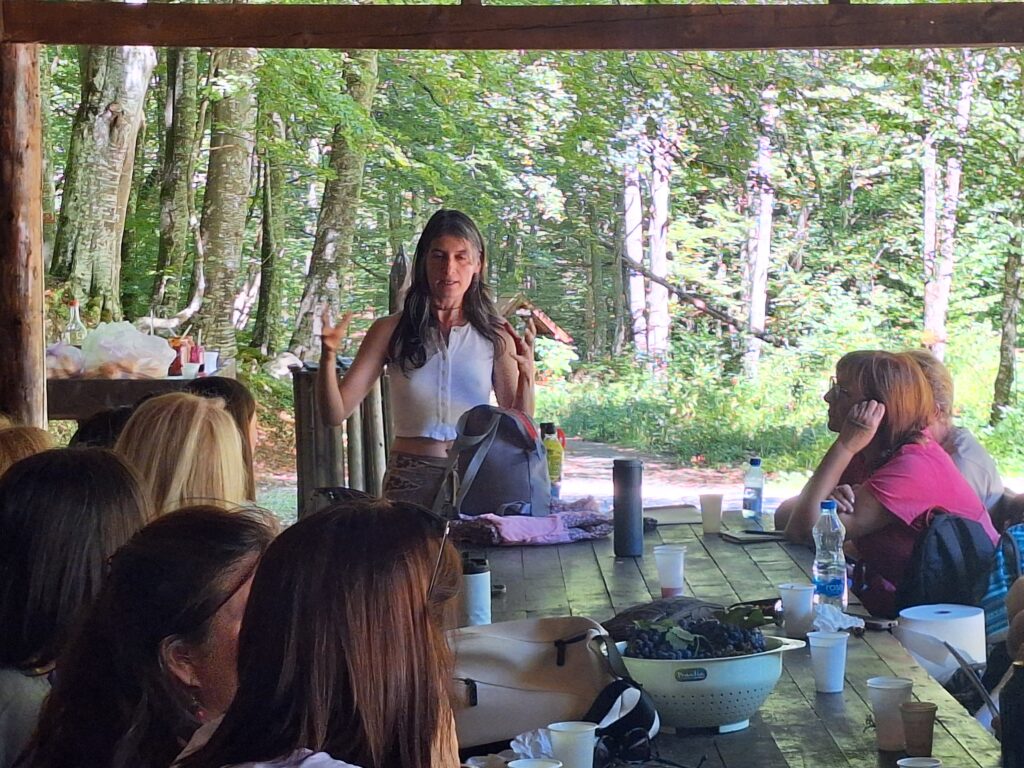
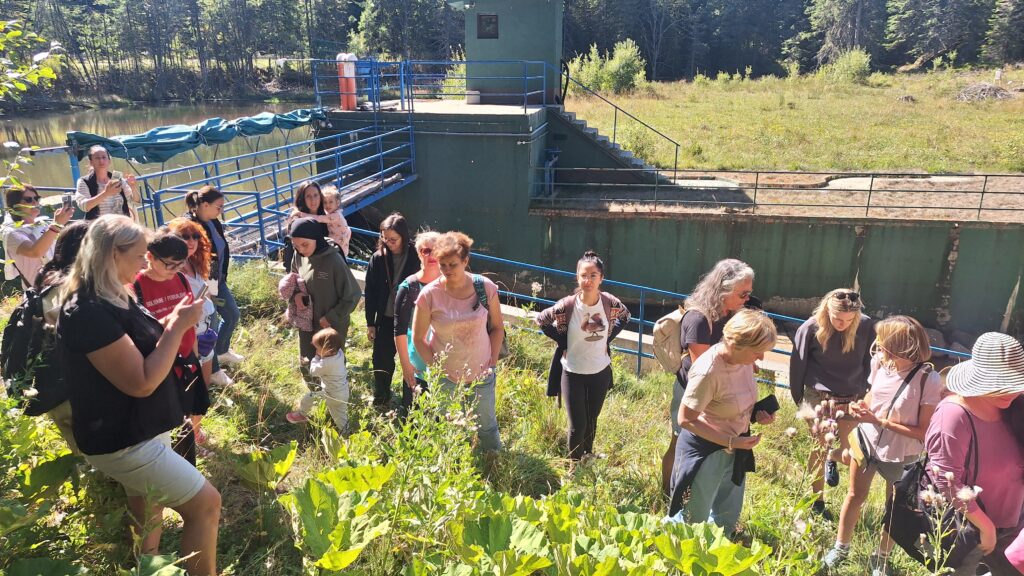
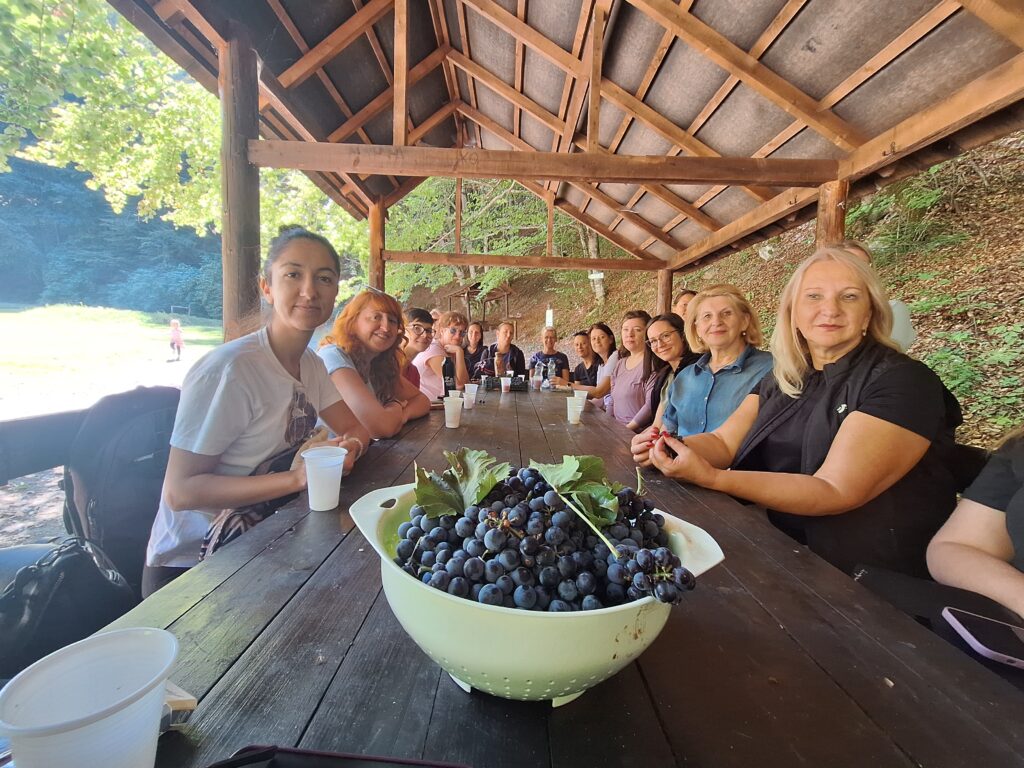
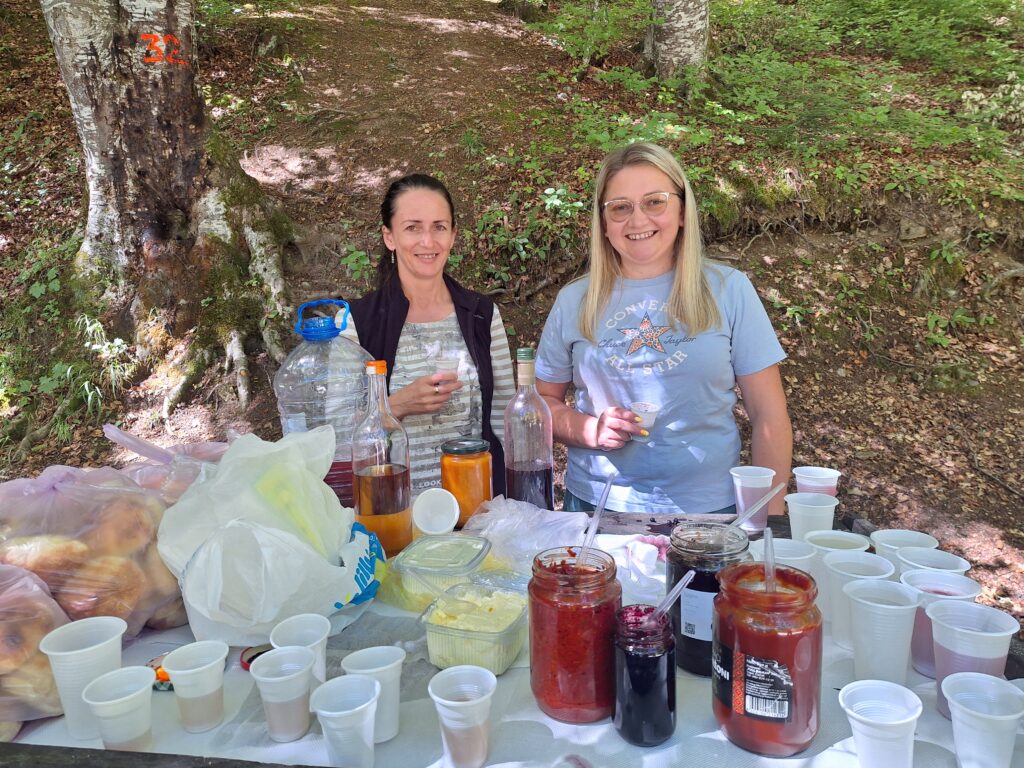
The second part of the excursion took place in a more positive atmosphere, as the participants visited the beautifully maintained Đorov Most picnic area, where they could experience nature at its finest. They refreshed themselves with homemade products from “Flavors of Kopaonik,” prepared by our hosts. Afterwards, Jelena Blažić from the organization Mamin Gaj spoke about permaculture practices in agriculture, focusing on sustainable water use. The discussion naturally expanded to the use of pesticides and industrial fertilizers, and how such practices affect both soil and water quality.
The seminar also featured a special guest from Spain, Sandra Tous Rodrigues from the European Water Movement, who illustrated, through examples from Europe, what the struggle for fair water management looks like on a global level. Her presentation served as a reminder that the battles we fight locally are happening elsewhere as well, and that we are part of a much larger picture.
The day concluded with a lecture by Prof. Marija Ćosić from the Faculty of Agriculture in Belgrade, who spoke about climate change and water supply. Particularly striking were the figures: losses of surface and groundwater, 70% of total reserves used for agriculture, and increasingly frequent restrictions affecting households in Serbia.
Ćosić emphasized that climate change is already having a significant impact on water supply in Serbia. The country’s average air temperature has risen by more than 1℃ over the past 50 years, leading to more frequent and intense heatwaves and droughts, uneven rainfall, and increased water consumption. She concluded her lecture by noting that, in the coming decades, climate change will require new water management strategies in Serbia. Precision agriculture, the construction of reservoirs, the introduction of modern water supply systems, and more efficient water use in industry and households will be key to ensuring stable water supply.
On the third day, the focus was on strengthening the capacities of the participants themselves. During an interactive workshop led by Ivana Bojović from Hansen Beck, discussions centered on how to communicate more effectively with the community, the media, and decision-makers. Topics included building trust, clarity of message, and the power of women’s voices in the fight for nature.
To conclude the three-day seminar, the report of the Committee of the Women’s Network for Nature and the Environment was presented, and joint plans for the upcoming period were agreed upon. Although the participants came from different backgrounds, with varied experiences and struggles, they all left Kopaonik with a sense that they are not alone and that their voices matter. The seminar “Thirsty for Justice – Women’s Voice for Water” served as another reminder that women across Serbia are not waiting for change—they are driving it.
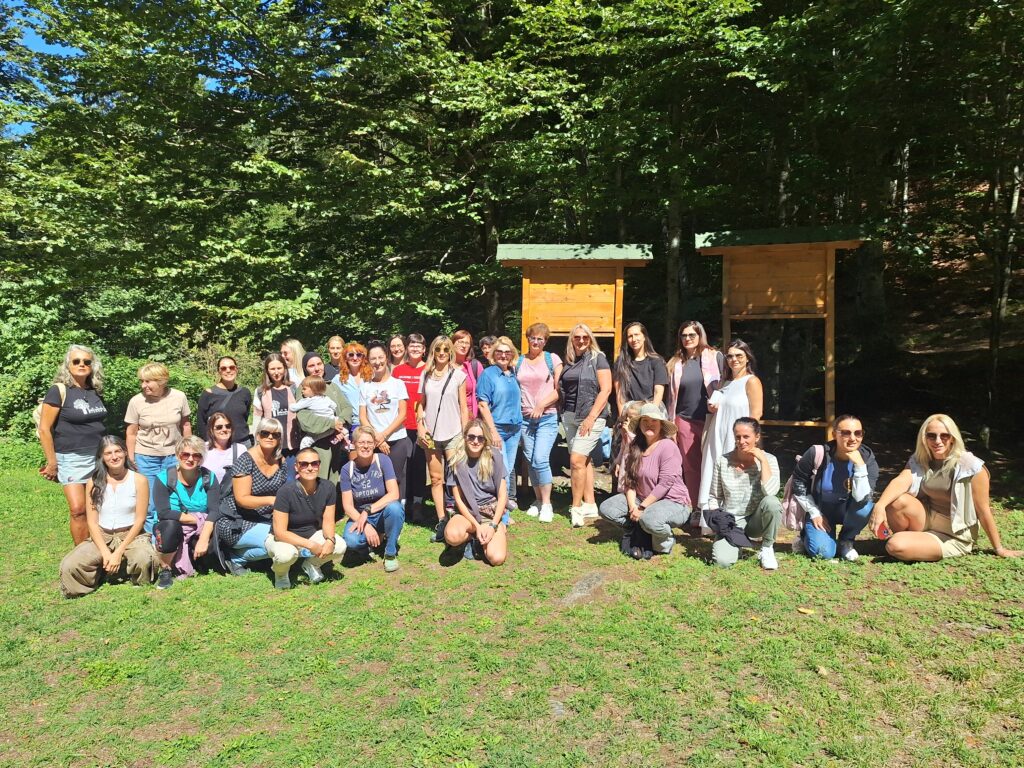
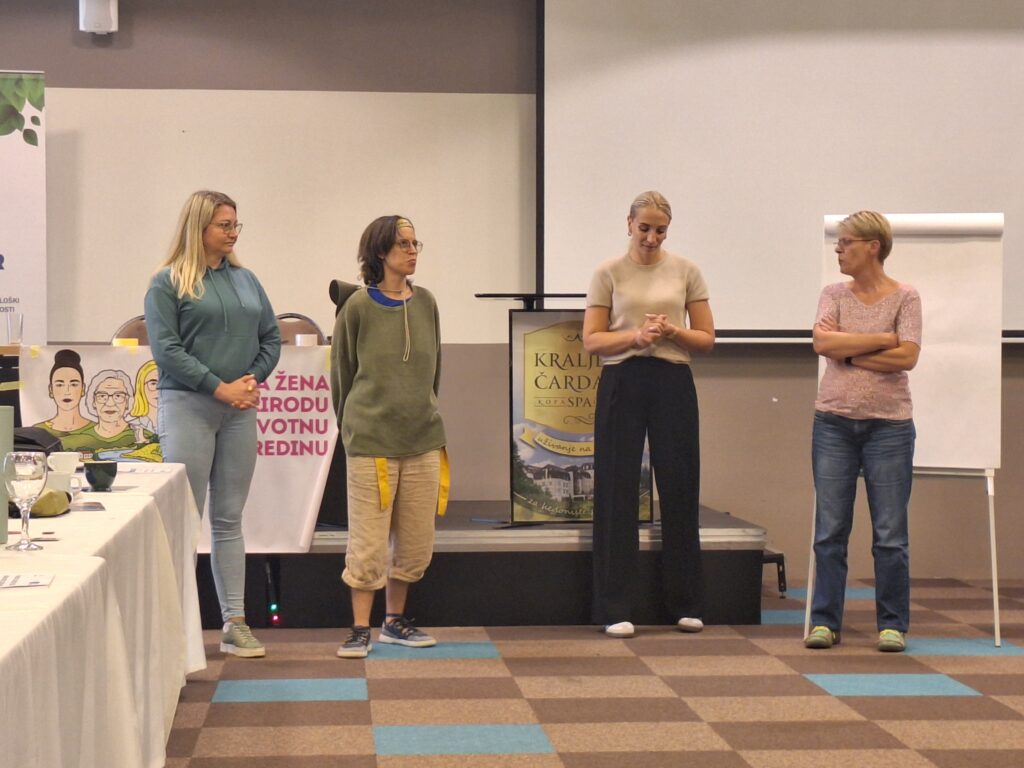
The seminar was organized by the association Ekomar, with the support of Polekol and Eco Heroes, as part of the project “Thirsty – Inclusive Practices for Sustainable Water Supply in Times of Climate Change”. It is also part of the EKOSISTEM program, implemented by Young Researchers of Serbia and supported by Sweden.
